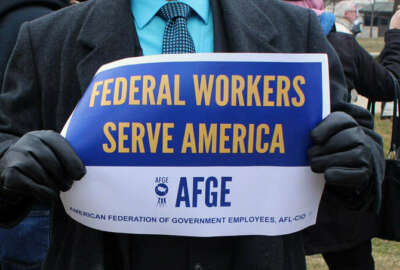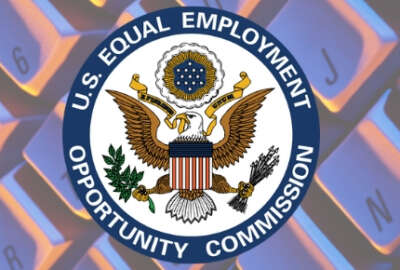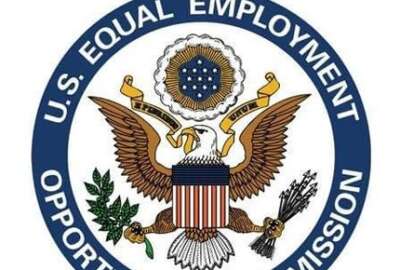
EEOC adds safety inspections, flexible work hours in FLRA complaint settlement
EEOC and AFGE reached a settlement agreement after the Federal Labor Relations Authority issued a complaint over the agency's office reentry policy.
The Equal Employment Opportunity Commission reached a settlement with its union, the American Federation of Government Employees, after months of disputes over its office reentry policy.
After EEOC started returning employees to in-person work in May, AFGE filed multiple unfair labor practice (ULP) charges against the agency. The union said EEOC refused to complete union negotiations before implementing its phased office reentry policy. The ULPs ultimately led to the Federal Labor Relations Authority, tasked with overseeing labor management concerns for the federal workforce, issuing a formal complaint against EEOC in July.
The settlement of the FLRA complaint led to a new memorandum of understanding (MOU) between EEOC and AFGE on Nov. 22. The MOU defines in-person health and safety policies, as well as implements some temporary flexible work opportunities for employees.
“I hope that this is a foundation for moving forward productively and consistently with labor management obligations,” said Rachel Shonfield, president of AFGE council 216, which represents 1,400 EEOC employees.
Specifically, the MOU will implement health and safety inspections of all worksites and fix any problems found during inspections, according to a Dec. 5 press release from AFGE. It’ll also institute a safety policy for handling in-person appointments with members of the public.
The new MOU was a step in the right direction for both the agency and the union.
“I am pleased that we have an agreement with the union and look forward to our continued partnership working to advance equal employment opportunities in the workplace,” EEOC Chairwoman Charlotte Burrows said in an email statement.
“The MOU hits very important priorities for the union, in terms of health, safety and workplace flexibilities. And the workplace flexibilities themselves support safety and bring us in line with other agencies,” Shonfield said in an interview.
The MOU will also temporarily expand telework options for EEOC employees. This January and February, public-facing employees will be required to come into the office for three days every two weeks. During those two months, the agency will collect data to see how well the balance of telework versus in-person work is functioning.
“The union is confident it will be working fine, because we’ve been in a position of maximum telework over two years before we ran to the offices. Throughout the pandemic, we were serving the public,” Shonfield said.
Following the two-month trial period, EEOC and AFGE will begin negotiations on a permanent telework agreement. And while EEOC and AFGE are working on negotiations, employees will resume coming to the office two days a week starting March 1.
Additionally, the MOU extends a “maxiflex” work schedule pilot, which the agency initiated during the pandemic. The maxiflex pilot expands start and stop times for employees, giving them more work flexibility throughout the day. EEOC has typically only extended the pilot program 30 days at a time, Shonfield said. The MOU will now extend the program until May.
“It is good for work-life balance, and it is also helpful in serving the public. This way, we have staff who are available earlier in the day or later in the day, to be able to interact with the public,” Shonfield said. “In case, for instance, somebody wants to talk before or after work, this extends the time that they can talk to our staff, so it’s a positive development for everybody.”
Back in May, EEOC returned employees to the office in several phases. The commission first returned senior leaders, supervisors and managers to in-office work, before returning frontline EEOC employees as well. In-person work started at one day per week for the first month, then moved up to two days per week. But that reentry process began before the agency had completed office reentry negotiations with AFGE.
“What we were trying to negotiate in May was a process for doing joint walkthroughs between union and management, using an agreed-upon form and figuring out what, if anything, needed to be fixed,” Shonfield said. “When the agency abruptly and unilaterally implemented reentry and brought staff back, there was this haphazard process that occurred in less than a week, where the agency picked up some items we’d been negotiating, picked their version of the form, and rushed to do some inspections.”
Although the agency and union settled the FLRA complaint, Shonfield said the delayed agreement made it challenging to work out policies in the MOU.
“It was more complicated to negotiate reentry after reentry [had already happened],” she said. “We had problems trying to figure out how to do things retroactively. That would have been less confusing on the front end.”
House Republican leaders, though, have raised further concerns about EEOC’s ability to effectively serve the public. Ranking Members Virginia Foxx (R-N.C.) and Russ Fulcher (R-Idaho) — of the Education and Labor Committee and the Civil Rights and Human Services Subcommittee, respectively — pointed to the commission’s fiscal 2022 through 2026 draft strategic plan, which they said had key missing details.
“We are concerned the strategic plan … omits a specific plan to address EEOC’s current failure to return its employees to regular in-person work,” the lawmakers wrote in a letter to Burrows on Dec. 5.
EEOC spokesperson Victor Chen said the agency has received the letter and is now in the process of reviewing it.
“We are happy to work with our partners in Congress to ensure the vigorous enforcement of the federal laws that protect equal employment opportunity in America’s workplaces,” Chen said in an email to Federal News Network.
But according to AFGE, agency operations continued smoothly throughout the pandemic, by creating a virtual mediation process for members of the public.
“Our employees completely innovated the mediation process, which had always been done in person. We definitely want to be able to continue innovations that we learned during COVID, and then bring back safe in-person options,” Shonfield said.
An FLRA administrative law judge will hold a hearing over the complaint against EEOC on Feb. 2.
Copyright © 2024 Federal News Network. All rights reserved. This website is not intended for users located within the European Economic Area.
Drew Friedman is a workforce, pay and benefits reporter for Federal News Network.
Follow @dfriedmanWFED
Related Stories





